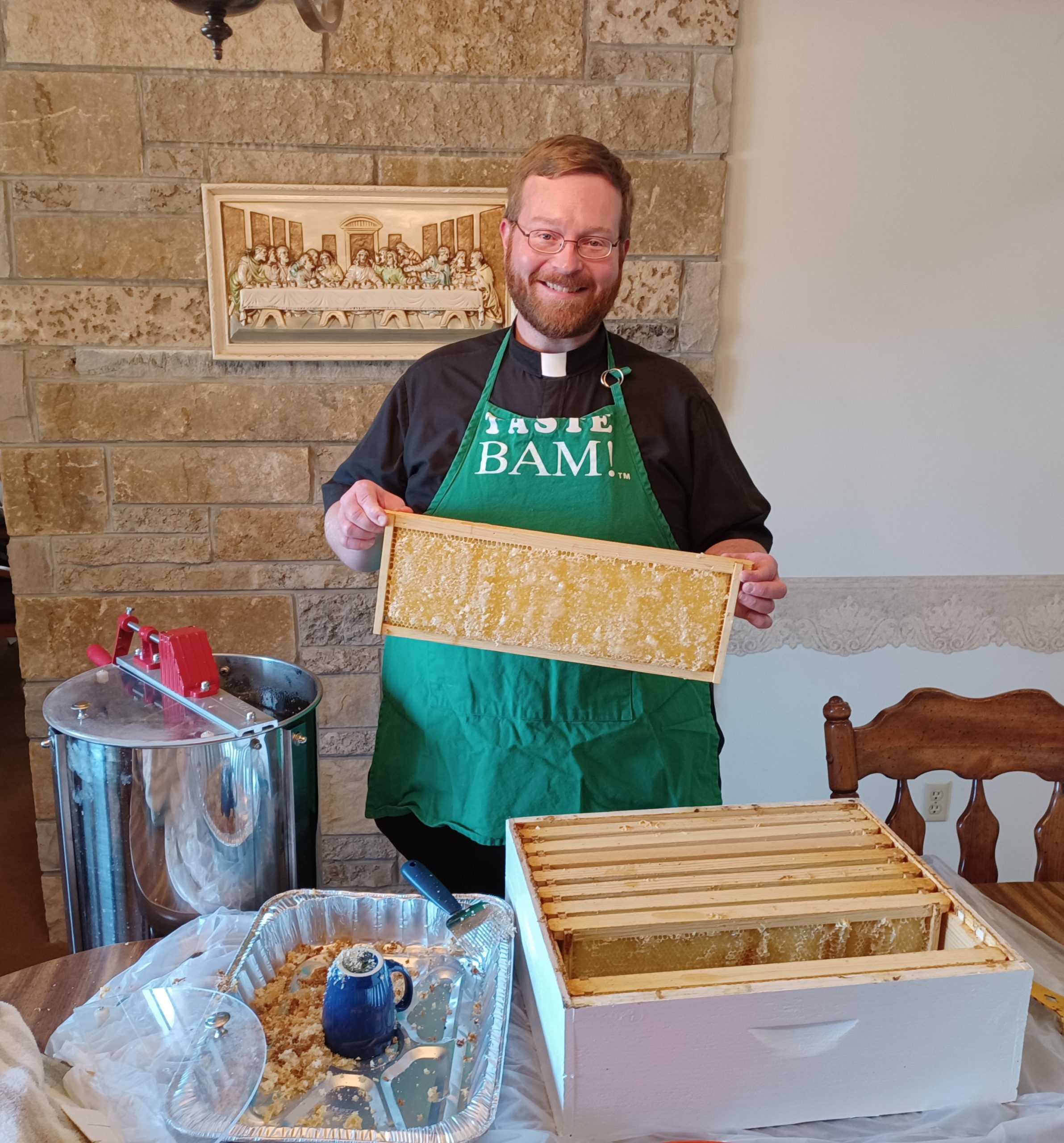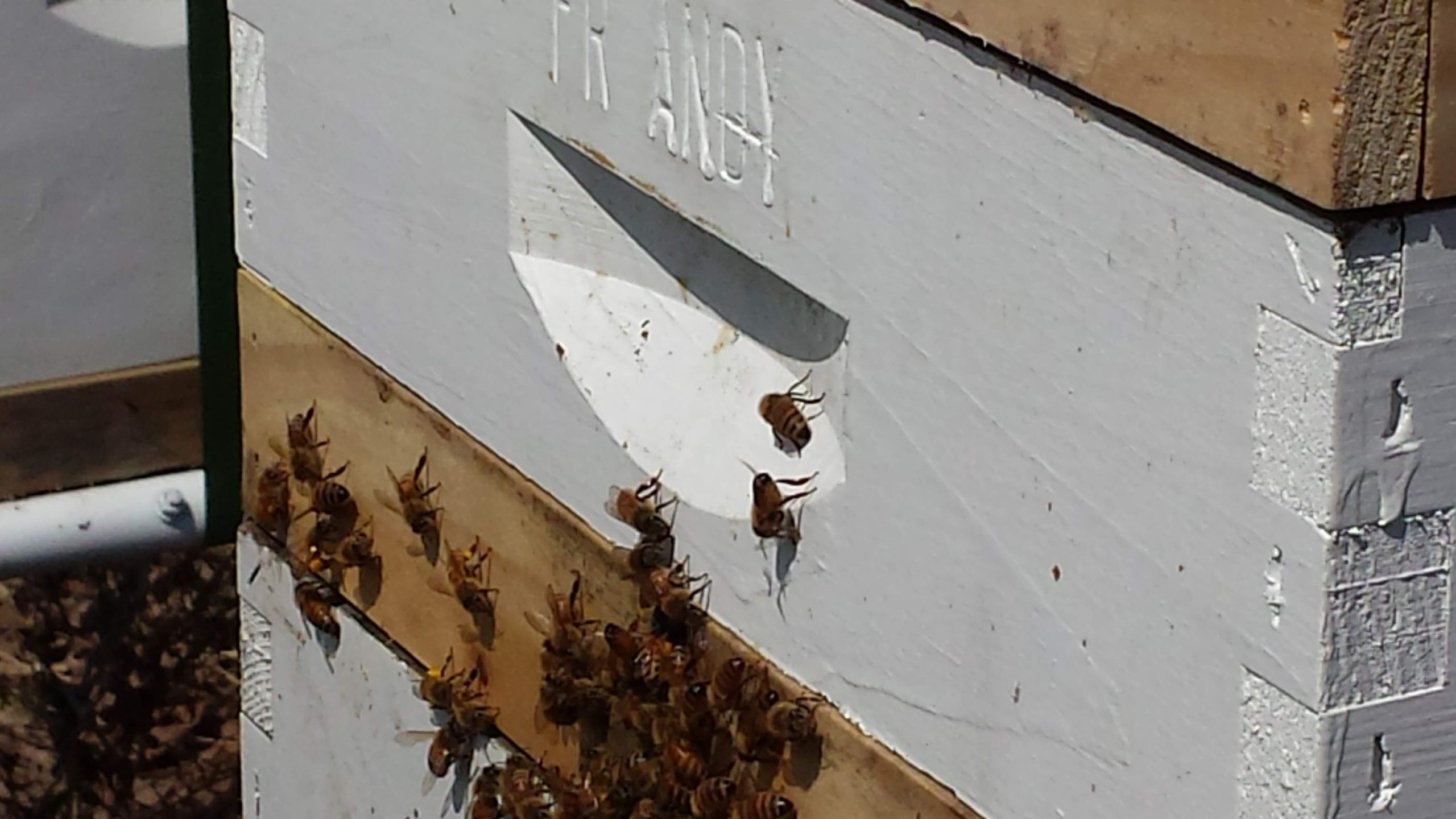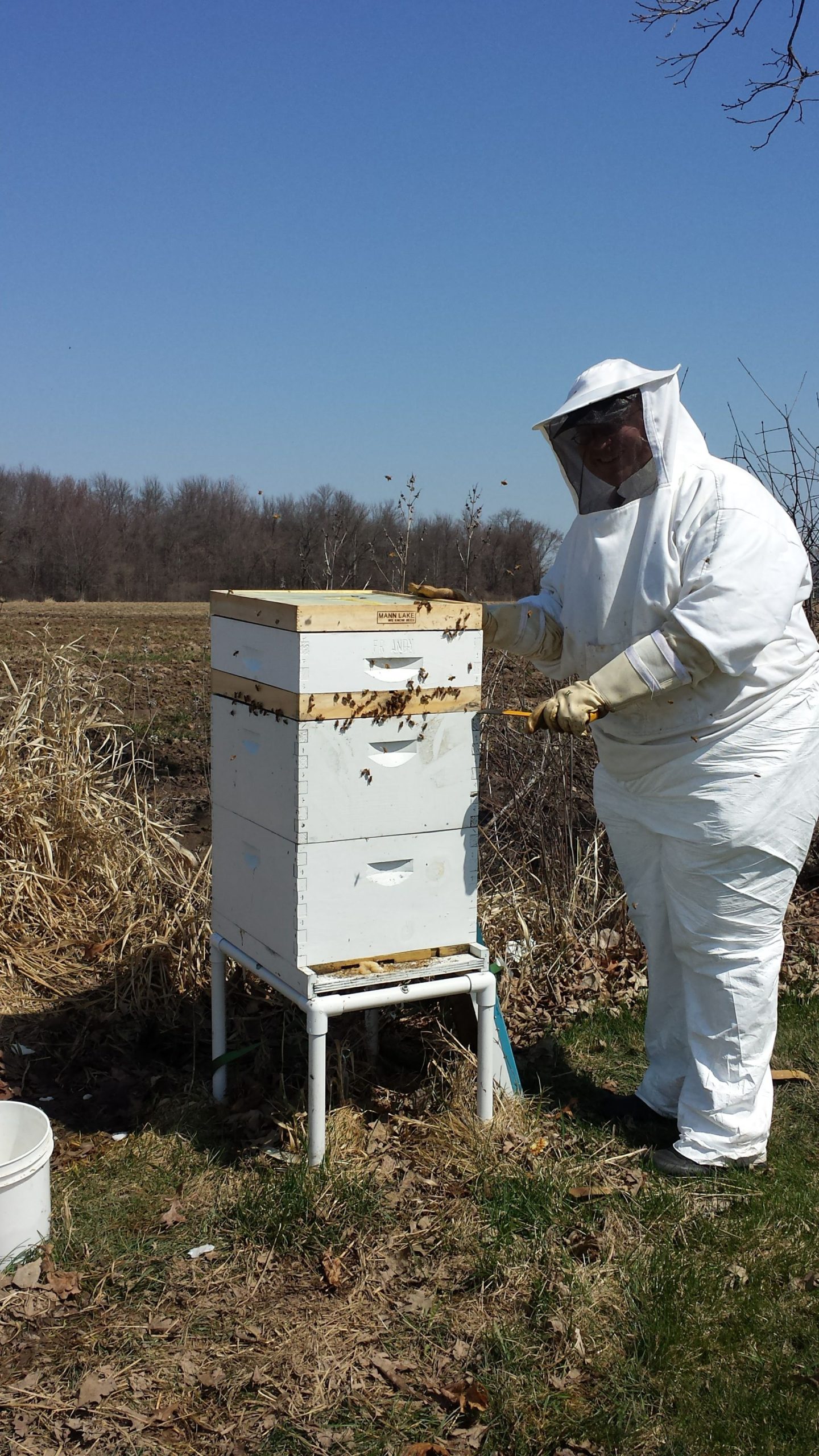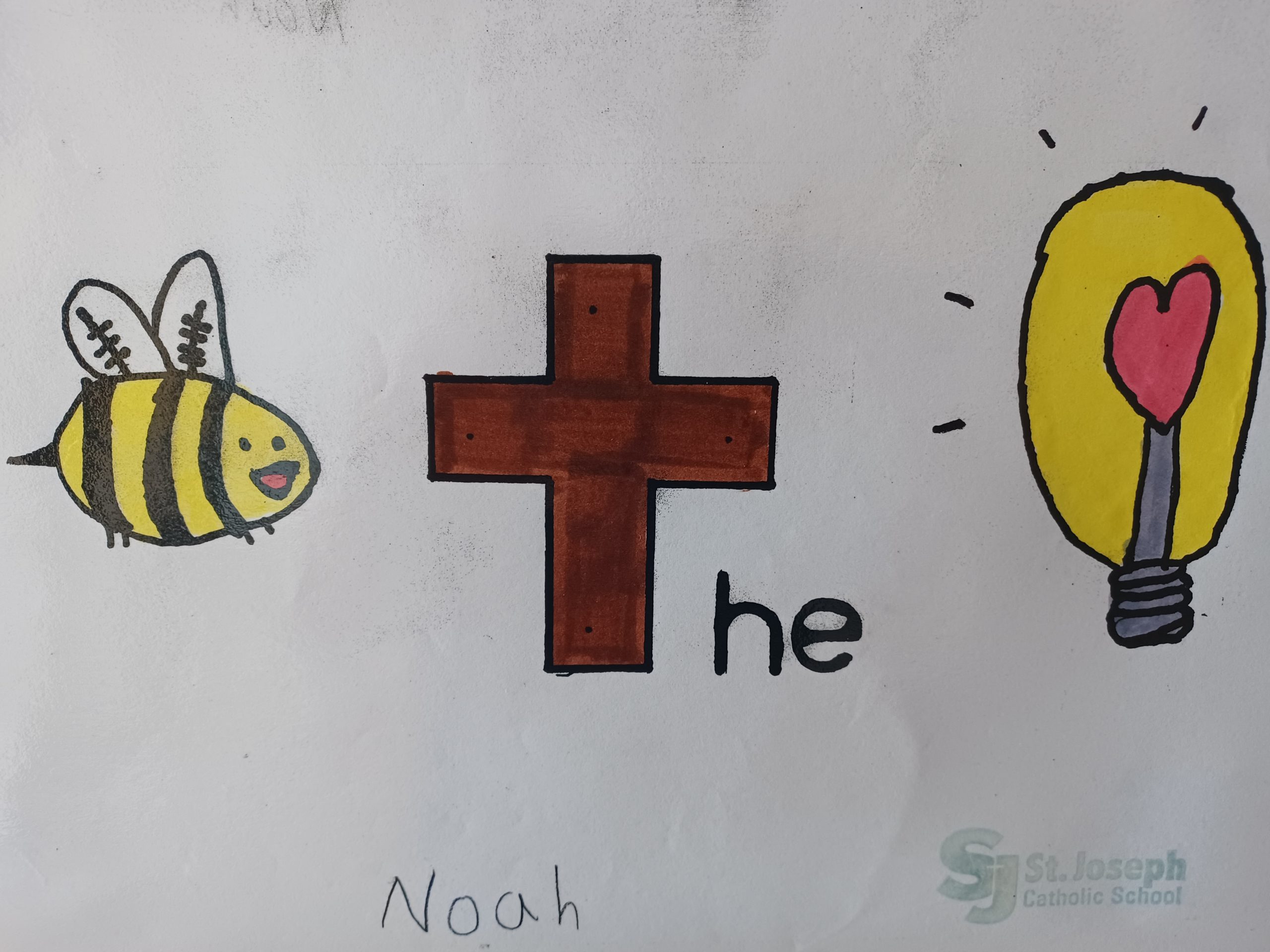
Fr. Andy Kysely, the pastor of St. Joseph in Big Bend, has an unusual hobby – beekeeping. (Submitted photo)
The buzz around Fr. Andy Kysely has a lot to do with his unusual pastime.
For the past 10 years, the pastor at St. Joseph in Big Bend has enjoyed his hobby of beekeeping.
When he’s not celebrating Masses, hearing confessions or making sick calls, there’s a good chance he is tending his approximately 1 million bees in the mid-summer months.
Fr. Kysely currently has four hives, down from the eight he used to have.
The hobby stems back to Fr. Kysely’s youth, when the pastor of his parish, Msgr. John Francis Murphey, raised honeybees. He would come into the classrooms to teach religion and often spoke of the inner workings of the honeybee hive.
“When I was in high school and college, he invited me to help him with his hobby, and I was so intrigued that I wanted to be a beekeeper myself,” Fr. Kyseley said. “Once I became a pastor and had the space, I took the leap to begin.”
Raising bees is a natural wonder, and Fr. Kysely explained that each bee in a hive has its job. The queen bee lays eggs in the honeycomb and directs the hive’s activity. The worker bees tend to the hive, performing different tasks depending on the age of the bees. When the bees first hatch, they work the center of the hive, building a comb and tending to the brood, which consists of the eggs, larvae and pupae.
“There are bees that fan the hive to dehydrate the nectar. Once about 87 percent of the nectar is dehydrated, you get honey, and then the bees will cap it off with wax to seal it,” Fr. Kysely said. “Some bees are guard bees, and their job is to protect the hive from intruders. As the bees get older, they begin to forage to bring pollen and nectar into the hive. All of this happens in a short amount of time. It takes about 21 days for a bee to hatch from the time a queen lays an egg.”
Once hatched, the bee will live three to six weeks in the summer. In the winter, if conditions are right, a bee may live a few months while working the inside of the hive. It is a lot of work for the bees and the beekeeper, but Fr. Kysely said the honey harvest makes it all worthwhile.
“It always amazes me that three pounds of bees in the spring when I begin a hive will produce enough bees in one season to make up to 60 pounds of honey or more if it is a good season. It takes the lifetime of about 12 bees to make one teaspoon of honey,” he said. “A hive of bees will fly about 55,000 miles foraging to produce about one pound of honey. This is just amazing to me.”
The three-pound supply of bees Fr. Kysely orders each spring consists of 10,000-13,000 honeybees. By July, a healthy hive has multiplied to about 250,000 bees working the hive. The queen bee lays between 1,500 and 2,000 bees each day in the summer.
In the spring, Fr. Kysely inspects the hives every 10-14 days, and when the population of the hives and honeycomb increases, he adds additional frames for the bees to build up more honeycomb.
“What takes the most time in beekeeping is harvest time. Getting the honey off the hive is always very tricky since the bees are annoyed, to say the least, when you take honey off the hive,” Fr. Kysely said. “This process, depending on how much honey there is, could take from 60-80 hours off and on over the course of a couple of months.”
Rarely does he get stung by his bees. In the fall, they tend to be more aggressive when he is extracting the honey. He has not gotten stung some years, and in other years, he will be stung one to three times in a season.
While Fr. Kysely has sold his honey, he seems to gift much of it and donate some for parish and school events. Since it is an expensive hobby, most of what he makes returns to the hobby. One year, he made a few hundred dollars and used the funds to plant fruit trees in the back yard of his previous parish near his beehives.
“I have donated a lot of my honey for parish fundraising events over the years. This past April, I boxed up some honey in a package for our school auction, and the honey auction items brought in more for St. Joseph School than I would have ever imagined,” Fr. Kyseley said. “It feels great to put my hobby to use for great causes like Catholic education.”
The St. Joseph schoolchildren enjoy Fr. Kysely’s hobby and frequently present him with cards on his birthday decorated with honeybees or bring him honey-laden desserts.
Theologically, Fr. Kysely appreciates the scriptural connection to honeybees, such as Psalm 81, which mentions honey from the rock.
“This is on my private honey label, which reads, ‘Holy Hive Honey, from the rock,’ after Psalm 81. Some Psalms will talk about being swarmed by bees, so when I pray Psalms like this in the Liturgy of the Hours, I know first-hand what it is like to be swarmed by bees,” Fr. Kysely said. “On Holy Saturday, during the Easter Vigil, there is the beautiful ancient hymn called the “Exsultet,” or “The Easter Proclamation,” in which there is a reference to the pillar of the Easter Candle that is ‘the work of bees and of your servants’ hands,’ which is ‘fed by melting wax, drawn out by mother bees to build a torch so precious.’ God’s creation is really beautiful, and we see that played out in so many ways in Scripture and the Church’s Liturgy.”




